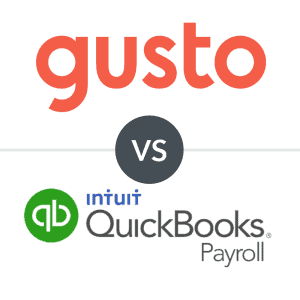Need to understand Oregon payroll taxes and how they relate to your small business? Read our guide for all you need to know to navigate payroll taxes in the state of Oregon.
With so many tax rates and deadlines to keep up with, handling payroll taxes in Oregon can be challenging. Fortunately, we’ve got you covered.
This guide will teach you everything you need to know about payroll and Oregon payroll taxes.
If you’re interested in adopting payroll software for your business, check out our guide to the best payroll software for small businesses.
Does Oregon Have State Income Tax?
Yes, Oregon’s state income tax rate ranges from 4.75%-9.90%, depending on an individual’s tax-exempt status, filing status, and income.
Oregon levies a corporate excise or business tax starting at a rate of 6.6% for corporations with taxable income of $1M or less or 7.6% for corporations with taxable income over $1M.
When Is Oregon State Income Tax Due?
For individual tax filers in Oregon, income tax filing and payments are due on April 15th of each year.
Oregon’s business income taxes are due by April 15th for calendar-year filers. However, if your business expects to own more than $500 in taxes, you are required to make quarterly payments on April 15th, June 15th, September 15th, and December 15th, respectively.
What is Oregon ePayroll?
Oregon ePayroll is the state government payroll system used to manage payroll for all state agencies and employees. Private businesses in Oregon will not need to use or access the Oregon ePayroll system unless they are contracted by a state government agency.
Oregon ePayroll is not to be confused with the Oregon Payroll Reporting System (OPRS), which private businesses use to manage payroll reporting and more.
What Is The Oregon Payroll Reporting System?
The Oregon Payroll Reporting System (OPRS) is now called Frances Online and serves as a payroll reporting self-service portal for Oregon employers and contractors.
With Frances Online, employers can file payroll taxes, submit Paid leave Oregon applications, read notices, make changes to their account, pay assessments, make appeals, report unemployment fraud, and more. The site also hosts useful financial and tax resources for both employers and employees.
To sign up for Frances Online, an employer or third-party administrator must have a federal ID number and business Identification Number (BIN).
A form of verification is also needed and may include one of the following reports from the last two years: unemployment insurance, state withholding, TriMet transit district tax, Lane transit district tax, or Workers’ Benefit Fund.
Federal & State Payroll Taxes In Oregon
Oregon has a host of business and payroll taxes on the state level. Additionally, business owners in the state will also need to consider federal payroll taxes and withholding.
Here’s a look at the federal and state payroll taxes in Oregon.
Oregon Income Tax
Oregon’s income tax rates range from 4.75%-9.90% depending on the tier of income tax bracket.
Oregon Corporate Excise Tax
Oregon’s corporate excise tax is calculated based on a business’s taxable income.
Oregon’s corporate excise tax rate is 6.6% and applies to businesses that have earned $1 million or less in taxable income.
Oregon’s corporate excise tax for businesses that have earned more than $1 million have to pay 7.6%.
Oregon Corporate Activity Tax (CAT)
The Oregon Corporate Activity tax was established in 2019 and applies to Oregon businesses that exceed $1 million in corporate activity (think: sales, transactions, etc.). Oregon’s CAT tax rate is $250 + 0.57% of a business’s commercial activity that exceeds $1 million.
CAT tax payment is due on April 15th of each tax year.
FICA Taxes
The Federal Insurance Contributions Act (FICA) established FICA taxes, including social security and Medicare taxes. Employers are responsible for paying their share of FICA taxes out of pocket and withholding employee contributions from their paychecks.
FICA tax rates are as follows:
- Social Security Tax: The total social security tax rate is 12.4%, evenly split between employers and employees. Employers pay 6.2% and withhold 6.2% from employee paychecks.
- Medicare Tax: The 2.9% Medicare tax is also split between employers and employees, with each entity contributing 1.45%. Employers are responsible for withholding an additional 0.9% for employees earning over $147,000 annually.
Federal Unemployment Tax (FUTA)
The Federal Unemployment Tax Act (FUTA) established FUTA taxes at the federal level in 1939. Today, Oregon business owners can expect to pay 6% of the first $7,000 earned by each of their employees every tax year.
Keep in mind that this tax is not withheld from employees’ paychecks. FUTA taxes must be paid by the employer alone.
FUTA taxes are due on January 31st of each tax year, barring any scheduling changes. Businesses may carry over FUTA tax liabilities into new quarters if their previous liability was under $500. Once the liability reaches $500, you must make a quarterly payment.
Oregon Unemployment Insurance Tax
Oregon’s unemployment insurance tax rate ranges from 2.1% of taxable wages up to $50,900 per employee to 2.4% of the $52,800 taxable wages per employee.
Oregon Workers’ Benefit Fund
Oregon operates a Workers’ Benefit Fund (WBF) to fund return-to-work programs, provide benefits to disabled workers, and provide funds to the families of workers who have died as a result of a workplace injury or disease.
Employers and employees are required to split the WBF contribution of 2.0 cents per hour worked, with each party paying 1.1 cents. WBF contributions should be withheld and reported alongside traditional payroll taxes.
Oregon Transit Payroll Taxes
Oregon has a surprising number of payroll taxes related to transportation in the state.
Oregon levies a statewide transit tax to fund the expansion of public transportation in Oregon. Employers are required to withhold and remit one-tenth of one percent or 0.10% from employee wages.
Additionally, Oregon businesses and self-employed individuals are required to pay local transit taxes in six of Oregon’s districts, including the TriMet (check zip codes for districts that use the TriMet Tax), Lane, Canby, Sandy, Wilsonville, and South Clackamas districts.
Oregon Sales & Use Tax
Oregon does not have a sales tax, nor does it collect taxes on online purchases. The state also lacks a use tax.
However, Oregon does levy a 0.005% vehicle use tax and a 0.005% vehicle privilege tax on applicable vehicles. These vehicles must meet all the following requirements:
- The vehicle was purchased after January 1, 2018, from an entity that would be required to register as a dealer in Oregon.
- The vehicle was driven less than 7,500 miles or sold with a manufacturer’s certification of origin.
- The vehicle has a gross weight rating of 26,000 pounds or less.
- The vehicle has never been registered or titled in Oregon, except as a dealer demonstrator.
You can find more information about Oregon’s vehicle tax on the state’s Oregon vehicle tax page.
Oregon Luxury Tax
Most Oregon businesses selling or manufacturing luxury products, including marijuana, alcohol, and tobacco, are subject to luxury taxes on those products. Additionally, businesses will need to pay for and maintain licenses with the Oregon Liquor and Cannabis Commission (OLCC).
Oregon Payroll Tax Exclusions & Exemptions
In general, Oregon individuals who have received income from Oregon are required to file income tax returns, regardless of residency status. However, some Oregon residents may not be required to file an income tax return if their gross earnings fall below a certain amount depending on their filing status.
Individual filers may be eligible for one of the 44 Oregon tax credits, including standard credits, carry forward credits, credit recaptures, and refundable credits.
Businesses may qualify for one or more of Oregon’s 32 corporation income tax credits.
Organizations that are considered tax-exempt based on IRS requirements are also considered exempt from Oregon corporation excise and income taxes. Generally, these businesses are considered nonprofits and charities.
Oregon Labor Laws & Other HR Requirements
Oregon labor laws strongly favor employees when compared to other states. As an employer in Oregon, you’ll need to be aware of the state’s many labor laws and HR requirements, from new-hire reporting to anti-discrimination laws.
Keep reading for an in-depth breakdown of Oregon’s labor laws.
Oregon New-Hire Reporting
Oregon employers are required to report newly hired or rehired employees within 20 days of their hire date. New hires include those who must fill out a W-4 form and any rehired employee that has not worked at the business for 60+ days.
New-hire reporting in Oregon must be made to the Division of Child Support of the Oregon Department of Justice. Reporting may be done online via the Oregon Employer Services Portal, mail, or fax.
Oregon Paid Leave Laws
Paid Leave Oregon is a relatively newly enacted program designed to provide Oregon employees and employers with guaranteed paid leave for qualifying life events.
Businesses with 25 or more employees are required to pay into the program, with employees and employers splitting the 1% contribution rate 60-40, respectively.
The program provides eligible employees with up to 14 weeks of paid leave under the following life events:
- Birth of a child
- Bonding with a new child
- Caring for a severely ill or injured family member
- Medical leave for employees who are severely ill or injured
- Safe leave for survivors of sexual assault, domestic violence, stalking, or harassment
Oregon Payday Laws
Oregon’s payday laws protect employee wages and set the standard for regular pay. In general, employers must pay employees on a regular payday schedule with paydays no more than 35 days apart.
Additionally, pay may not be withheld in exchange for the return of an employer’s belongings or as a form of punishment.
As an at-will state, Oregon allows both employers to terminate employees without reason, though employees may not be terminated for discriminatory reasons.
Oregon also imposes several termination pay laws, covering a variety of circumstances. Oregon’s termination pay laws are as follows:
- Quit With Less Than 48 Hours Notice: The final check is due the next regular payday or within five business days, whichever is sooner.
- Quit With More Than 48 Hours Notice: The final check is due on the employee’s final day of employment or the next business day if the final day of employment falls on a holiday or weekend.
- Laid Off Or Fired: The final check is due by the end of the next business day.
- Mutual Agreement To Terminate Employment: The final check is due by the end of the next business day.
- State Or County Fair Employment: When employment is terminated on the weekend or holidays, the final check is due by the end of the second business day after termination.
Oregon Minimum Wage
Oregon’s minimum wage ranges from $14.70-$15.45 per hour, depending on the worker’s location within the state.
Further, Oregon’s minimum wage will be adjusted annually to increase based on inflation rates. Any wage change will take effect on July 1st of each year.
Tip credits are illegal in Oregon, and tips are not considered wages in the state. That said, Oregon employees earning commission and those paid by the piece, per hour, or by day must still earn at least the minimum wage.
Oregon Workers’ Compensation
Like all states (except Texas), Oregon requires businesses to carry workers’ compensation.
Oregon businesses with one or more employees are required to have workers’ compensation insurance or be self-insured.
If your business is legally required to have workers’ compensation insurance, you must also post a Notice of Compliance in a location where workers will see it.
Oregon State Disability Insurance
Oregon does not have any laws that require businesses to carry disability insurance.
Child Labor Laws In Oregon
In addition to the federal laws that govern minor workers, Oregon enforces strict child labor laws.
Oregon requires businesses to file and maintain annual Employment Certificates to hire minor workers of any age.
Here’s a breakdown of Oregon’s most notable child labor laws.
Minors aged 14-15 are not allowed to work:
- During school hours
- More than three hours during the school day
- More than eight hours on non-school days
- More than 18 hours during the school year
- More than 40 hours when school is not in session
- Outside of the hours of 7 AM and 7 PM (or after 9 PM between June 1st and Labor Day)
Minors aged 16-17 are not allowed to work:
- More than 44 hours a week
- Delivering items to customers (driving)
In general, Oregon prohibits minor workers from working on hazardous work sites and operating heavy machinery. However, these prohibitions vary based on the industry and age of the minor.
For more information about child labor laws in Oregon, check out Oregon’s Bureau of Labor and Industries’ Minor Workers factsheet.
Meal Break Laws In Oregon
Oregon employees are entitled to meal breaks and rest breaks, depending on the length of their shifts. Employees working eight-hour shifts are entitled to one unpaid 30-minute meal break and two 10-minute paid rest breaks.
Outside of the standard eight-hour shift length, Oregon employees may be entitled to up to six rest breaks and three meal breaks.
Employers in Oregon are legally required to provide nursing mothers with reasonable lactation breaks and a private space to pump until the child is 18 months old.
Oregon-OSHA requires employers to provide employees with reasonable heat-illness prevention breaks for those employees who work under high index heat conditions.
Oregon Sick Leave
Oregon laws protect sick leave for employees.
Outside of Portland, businesses with 10 or more employees must provide employees with paid sick leave. If the business has a location in Portland, it is required to provide employees with paid sick leave if it has 6 or more employees. In all other cases, sick leave can be unpaid.
Employees earn one hour of protected sick leave for every 30 hours worked. However, an employee must have worked for an employer for at least 90-days before taking any earned sick time. Earned sick leave is capped at 40 hours per year.
At the federal level, employers must abide by the Family and Medical Leave Act (FMLA), which entitles employees to 12 weeks of protected leave.
Paid Jury Duty In Oregon
Oregon supports paid jury duty. Oregon jurors are paid $10 for their first two days of service and $25 for each following day of juror service. However, if an employer pays the juror for the days they are serving, the juror must waive their service fees.
Anti-Discrimination Laws In Oregon
In Oregon, it is illegal to discriminate against individuals in the workforce based on:
- Age
- Gender identity
- Sexual orientation
- National origin
- Race
- Color
- Marital or family status
- Disability
- Religion
- Military status
In addition to protecting workers from discrimination, Oregon laws protect employees from retaliation after filing complaints against an employer for breaking the law.
Oregon employers must also have written policies to reduce and prevent discrimination, sexual harassment, and sexual assault in the workplace. These written policies must be distributed to all employees when they are hired.
To learn more about Oregon’s laws against discrimination in the workplace, check out Oregon’s Bureau of Labor and Industries Discrimination at Work factsheet.
How To Calculate Payroll Taxes In Oregon
Calculating payroll taxes in Oregon can be a little challenging because employers in the state must account for a few non-traditional payroll taxes, including making contributions to a brand new statewide paid leave program and paying transit taxes. Fortunately, calculating payroll tax is a straightforward process once you’ve got the basics down.
Keep reading for a step-by-step guide to calculating Oregon payroll taxes, from setting up online tax payment accounts to handling deductions.
Step 1: Create Online Tax Payment Accounts
Within the state of Oregon, there are three primary payroll tax management systems that businesses can or may be required to use to pay their taxes, including the Electronic Federal Tax Payment System (EFTPS), Frances Online, and Revenue Online.
In addition to using the EFTPS to manage your federal tax liabilities, the system can be used to make federal tax payments. Most notably, businesses can pay federal excise taxes, FUTA taxes, corporate income taxes, and withheld federal income taxes using the EFTPS solution.
Frances Online allows employees to view and manage their combined payroll reports, which directly impact payroll tax liabilities. If you need to make a change, you can use the platform to do so. Additionally, Oregon businesses will be able to use Frances Online to make payments to the statewide transit tax and Paid Leave Oregon program.
Finally, Oregon businesses can use Revenue Online to make state and local-level payroll tax payments.
Step 2: List Out Oregon Payroll Taxes
Oregon has many state-specific payroll taxes that businesses are required to pay, contribute to or withhold. When calculating your Oregon payroll tax liability, you’ll need to create an exhaustive list of payroll taxes that apply to your business. Here are the most common payroll taxes in Oregon:
- FICA taxes
- FUTA taxes
- Federal income taxes
- State income taxes
- Oregon unemployment insurance contributions
- Oregon WBF contributions
- Statewide transit taxes
- Local transit taxes
- Paid Leave Oregon taxes
Step 3: Use The Payroll Tax Equation
The payroll tax equation is:
(Employee Gross Earnings) X (Payroll Tax Rate) = Payroll Tax Liability
Using this equation, you can quickly calculate the total tax your business owes or must withhold from employee paychecks.
You’ll need to start with your employee’s gross or pre-tax earnings in the pay period.
For salaried workers, gross earnings are fixed for each pay period, but for hourly workers, gross earnings are calculated by multiplying their hourly rate by the number of hours worked. For example, an employee who worked 80 hours at a rate of $30/hour will have earned $2,400 in gross wages.
Next, you’ll need to convert payroll tax percentages to payroll tax rates by dividing payroll tax percentages by 100. For example, the 0.10% statewide transit tax converts to 0.001.
With this information, we can calculate the statewide transit tax withholding for the employee with $2,400 in gross earnings. Here’s what these numbers look like when they are plugged into the payroll tax equation:
0.001 X $2,400= $2.40
In this example, the employer is responsible for withholding $2.40 from the employee’s paycheck.
If you are running payroll using the DIY method, you’ll need to calculate each tax individually for all your business’s employees. It’s a tedious and time-consuming process that can be more efficiently handled using payroll software.
Step 4: Make Withholdings, Deductions, & Payments
At this stage, you should know your payroll tax liabilities, including how much you are expected to pay as an employer and how much you need to withhold from each of your employees’ paychecks.
With this knowledge, you’re ready to make withholdings, deductions, and payments.
Generally, employers set aside withheld funds in special trusts, which are then used to pay the corresponding tax entities (think: the IRS and the Oregon Department of Revenue). Most payroll taxes are due on a quarterly or annual basis, but there are some cases in which an employer may be required to pay withholding taxes more frequently, so be sure to check your due dates.
Outside of payroll taxes and wage garnishments, employers may also make voluntary payroll deductions on their employee’s behalf. Voluntary payroll deductions include retirement account contributions, insurance premium payments, and union fees. Depending on your employees’ elections, you’ll need to deduct the applicable amounts from their wages before running payroll.
Finally, as an employer, you’re responsible for paying your share of payroll taxes at the federal, state, and local levels. Once you’ve calculated your tax liability, you can use the EFPTS to pay your federal tax liability and Revenue Online to pay both state and local level taxes.
Oregon Payroll & Other State Resources For Oregonian Business Owners
Oregonian business owners have to contend with plenty of state-specific payroll taxes that can make handling payroll manually feel like a herculean task. In addition to calculating payroll taxes by hand, you’ll also need to track payroll tax deadlines to stay in compliance and avoid hefty fines.
Upside — you’re already in a great place to get a handle on your business’s payroll taxes. Merchant Maverick is home to a host of valuable business resources for Oregon business owners. While you’re free to browse our resources at your own pace, here are a few recommendations:
If you’re interested in taking a deeper dive into payroll taxes: Guide to payroll taxes for small businesses. Or if you’re looking to adopt affordable payroll software for your business, check out our guide to the best cheap payroll software
FAQs About Oregon Payroll
Does Oregon have state payroll taxes?
Yes, Oregon has several state payroll taxes. Businesses in Oregon must pay or withhold the following payroll taxes including social security taxes, medicare taxes, FUTA, Oregon unemployment insurance contributions, local transit tax, paid leave, and Workers’ Benefit Fund (WBF) contributions.
What is the minimum wage in Oregon?
Oregon’s minimum wage starts at $14.70/hour but can increase depending on the business’s location in the state.
How do I use the Oregon payroll reporting system?
The Oregon payroll reporting system, now called Frances Online, can be used to manage payroll reporting for your business. Oregon businesses must sign up to the platform and provide identity verification to use Frances Online.
Once the sign-up process is complete, business owners or third-party administrators can use Frances Online to file and amend payroll reports, pay assessments, and much more.
Is Oregon a tax-friendly state?
Oregon does not levy a sales or use tax, so it may be considered a tax-friendly state.












